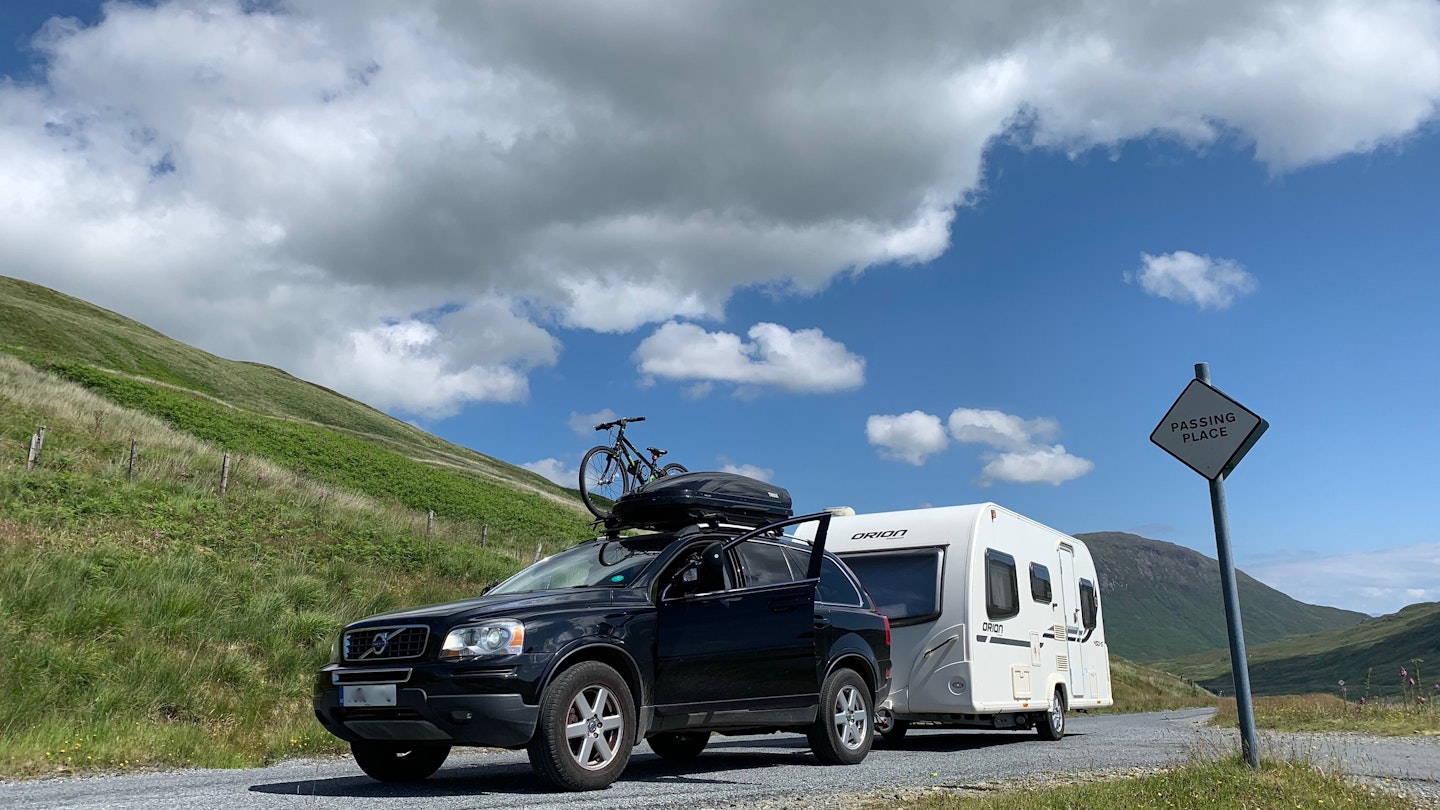Caravanning with Kids: An Ultimate Guide
It took me years to convince my husband that we should pack up our house, spend our savings on a caravan, take our young kids out of school, and travel from southeast England to the wilds and beaches of west coast Scotland. Nonetheless, as novice caravanners, our trip required meticulous planning. Here’s what you need to know about caravanning with kids.
How to Plan Your Family Caravan Adventure
Our adventure lasted two months, encompassing 18 stops, six ferries, and nearly 3000 miles. I wanted our kids – aged five and seven – to be inspired by what the UK has to offer, understanding that epic adventures don’t require a plane.
Planning commenced by buying a map and sticking it on the wall at home. During mealtimes, we explored it together, pointing out where we lived and where we aimed to go, allowing the kids to grasp the distances involved. I researched the UK’s wildest spots and various campsites that aligned with our comfort and adventure levels. Importantly, not all campsites accommodate caravans, and some resemble parking lots, which didn’t appeal to us. Our goal was to find sites that embraced both tents and caravans, teeming with nature, and cultivating a family-friendly, laid-back vibe.
Mapping Our Journey
We pinpointed areas of interest and campsites on the map, then calculated travel distances, keeping in mind that towing a caravan slows down our journey. We set a limit of four hours of driving at a stretch to keep our travel manageable, which ultimately dictated our itinerary.
To stay organized, I created a spreadsheet detailing our dates, route, locations, travel distances, ferry times, campsite names, postcodes, prices, website links, and an additional notes column. Given the number of stops and the extensive journey length, I also printed a blank calendar, placed it in the caravan, and noted our planned destinations for each day. This visual representation helped us appreciate how far we had traveled and how much further there was to go.
What to Pack for a Family Caravanning Trip
Gaffer tape and superglue emerged as the two most indispensable items! Beyond clothes and food, other essentials included:
- Reading materials
- Laptop for documenting our journey; camera and battery charger
- Torches (including head torches); binoculars; first-aid kit
- Waterproof clothing; walking boots; beach gear; wetsuits; sea shoes
- Camping chairs; folding tables; blankets
- Fire pit and matches
For entertain the kids, I prepared a small plastic crate filled with coloring pens and pencils, glue, erasers, and card games like Uno, Donkey, and Snap.
We even brought along a bucket of herbs for cooking, which we placed outside the caravan at each stop. Organizing a basket containing everything needed for breakfast was a game-changer; I could easily pull it out without rummaging through cupboards.
The standout item was the journals designated for the kids, enabling them to document our journey. Each section focused on different areas we visited, featuring old road maps for them to trace our route and thoughtful questions to ponder. This approach reduced the need for excessive toys or games, as they creatively drew pictures and wrote notes about our adventures.
How to Cope in a Caravan
No matter how much you plan, unexpected events are bound to arise. For us, it was the night a gale-force wind ripped off our caravan’s roof window, nearly sending it plummeting into the North Atlantic.
I completely underestimated how much time I would spend inside the caravan preparing meals and managing household tasks. While barbecuing became a frequent dining method, next time, I’ll definitely include an electric outdoor cooker for those days when time is of the essence.
We were also caught off guard by the numerous tasks associated with caravanning. Each departure required packing everything securely, as driving shakes the caravan, leading to potential spills. Tasks like winding up the legs, hitching the van, unplugging, and managing our waste water and clean water tanks took considerable time and needed to be repeated at each stop. Therefore, it’s crucial to factor these tasks into your travel timeline.
While the kids occasionally tested our patience, we knew difficult moments were part of the experience. Each challenge, like the roof incident, taught us about our resilience and resourcefulness. Strangely, these tough experiences often turn into cherished memories. Consequently, when I proposed the idea of embarking on another caravan adventure this year, the enthusiastic response from the family was a resounding “Yes!”
Follow our caravanning adventures on Instagram @happywildones.




